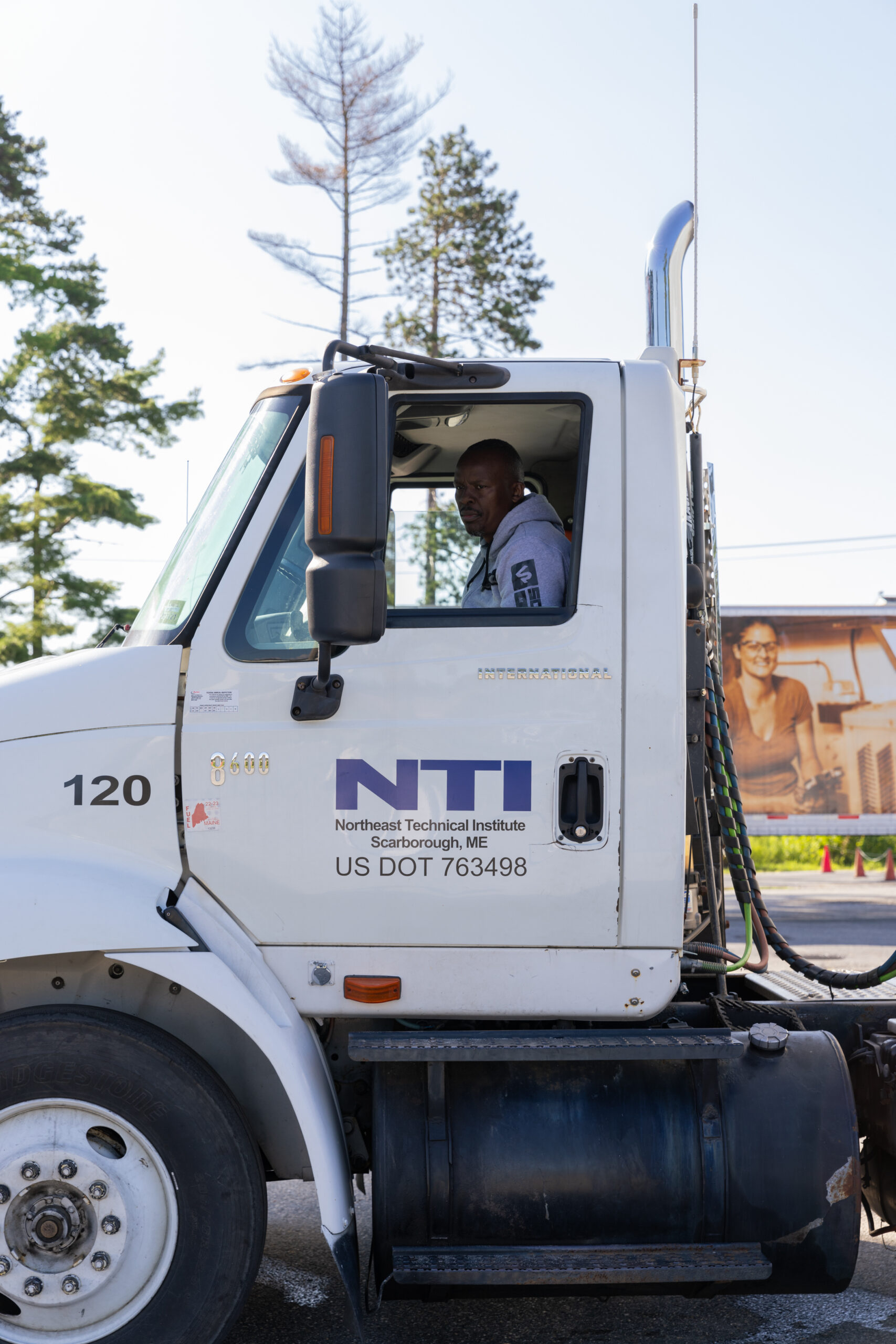The Complete Guide to Trade Schools for Veterans: Get Your Education Fully Funded
Did you know the Post-9/11 GI Bill covers tuition and fees up to $25,000 per year for trade schools for veterans at the 100% benefit level?
Your military service has earned you access to substantial education benefits that can completely fund your career training. Vocational programs typically take between six months and two years to complete, focusing directly on the skills needed for specific careers. This means you can train for a skilled trade in about a year at significantly reduced cost.
At Northeast Technical Institute (NTI), we understand that transitioning to civilian life includes finding the right career path. Many veterans ask us, “Does the GI Bill pay for trade school?” The answer is absolutely yes! The Post-9/11 GI Bill provides full financial support for vocational and trade schools. Programs like the Yellow Ribbon Scholarship can help cover tuition and fees that exceed the annual cap, offering up to $2,500 in additional education benefits.
Our specialized programs in CDL, HVAC, Healthcare, and IT are designed to help you use your VA benefits to launch your new career. Ready to explore how your GI Bill benefits can fund your vocational education? Visit ntinow.edu to learn more about becoming one of our successful veteran graduates.
Why Trade School is a Smart Choice for Veterans
Transitioning from military service to civilian life presents unique challenges, especially when it comes to finding meaningful employment. For approximately 200,000 service members who exit the military each year, trade schools offer a strategic pathway to rewarding careers that build on their military training and experience.
Faster path to employment
Unlike traditional four-year college programs, vocational schools and trade programs provide a direct route to employment. These programs typically take between six months and two years to complete, focusing exclusively on the skills required for specific careers. This streamlined approach means you can enter the workforce much sooner than peers pursuing conventional degrees.
The employment statistics tell a clear story—veterans who obtain certificates and certifications are more likely to have jobs (73%) compared to those without these credentials (64%). Veterans with these qualifications often earn significantly higher incomes, with an average increase of $10,000 in median income.
Our accelerated programs in CDL, HVAC, Healthcare, and IT at Northeast Technical Institute (NTI) are specifically designed to get you career-ready quickly. Rolling enrollment options mean you don’t have to wait months to begin your training—you can start building your future right away.
Hands-on training vs. classroom theory
Trade schools excel at providing practical, hands-on training that aligns with veterans’ learning preferences. Rather than sitting through theoretical lectures, you’ll engage in simulated work environments that mirror real-world scenarios. This approach naturally matches military training methods, where practical application takes precedence over abstract concepts.
Research shows that veterans consistently rate higher on technical skills such as installation, equipment maintenance, repairing, and troubleshooting compared to civilian counterparts. These strengths make veterans particularly well-suited for trade careers where technical proficiency and attention to detail are highly valued.
NTI’s training methodology emphasizes this hands-on approach. Whether you’re learning to maneuver a commercial vehicle, diagnose HVAC systems, master medical procedures, or configure network security, our programs provide the practical experience employers demand.
Industries that value military experience
Many industries actively seek veterans for their unique skill sets and work ethic. The top fields employing veterans with certifications include installation and maintenance (12%), transportation (11%), construction (10%), management (7%), and security services (7%).
Veterans are exceptionally well-qualified for civilian occupations due to their technical training, ability to operate under pressure, and strong interpersonal skills. Veterans typically score higher on service orientation, defined as “actively looking for ways to help other people”—a quality highly valued across numerous industries.
Military veterans constitute approximately 25% of the student body at some technical schools, highlighting the natural fit between military experience and trade careers. Popular programs among veterans include welding, HVAC/refrigeration, and automotive/diesel technology—all fields where the discipline, teamwork, and problem-solving skills developed in military service translate directly to professional success.
NTI is proud to be among the best trade schools for veterans, offering VA-approved programs that align perfectly with these high-demand fields. Our specialized training in Commercial Driving, HVAC, Healthcare, and Information Technology provides veterans with clear paths to stable, rewarding careers.
Ready to use your military experience and GI Bill benefits for vocational training? Visit ntinow.edu to discover how our programs can help you transition successfully to a civilian career that values your service and skills.
Understanding Your VA Education Benefits
Veterans exploring education options often have specific questions about VA benefits that can fund their career training. Here’s what you need to know about how these benefits work for trade schools and what you can expect.
Does the GI Bill pay for trade school?
Both the Post-9/11 GI Bill and Montgomery GI Bill cover vocational and trade school programs. The VA officially classifies these as “non-college degree programs,” which include specific training in fields like HVAC repair, truck driving, EMT training, and cosmetology.
At Northeast Technical Institute (NTI), we regularly help veterans apply their GI Bill benefits toward our specialized programs in CDL, HVAC, Healthcare, and IT. These VA-approved programs typically take less time to complete than traditional degrees, allowing you to enter the workforce faster while maximizing your benefits.
Post-9/11 vs. Montgomery GI Bill
These two programs offer different payment structures and benefits:
Post-9/11 GI Bill:
- Covers full cost of in-state tuition and fees at public institutions, with private and foreign schools capped at $29,920.95 annually
- Provides monthly housing allowance based on E-5 with dependents BAH rate for your school’s zip code
- Sends tuition payments directly to your school
- Offers book and supplies stipend up to $1,000 per academic year
- Benefits available to transfer to eligible dependents under certain conditions
Montgomery GI Bill (MGIB):
- Pays you directly every month, up to $2,150 monthly for 36 months
- No separate housing allowance or book stipend
- All vocational training programs including apprenticeships and on-the-job training are eligible
- Cannot be transferred to family members
- May require participation in the $600 Buy-Up program for additional benefits
Most veterans attending trade schools find the Post-9/11 GI Bill provides more substantial financial support. However, your specific situation might make the Montgomery GI Bill more advantageous, particularly if you’re attending part-time or enrolled in lower-cost programs.
What is covered: tuition, housing, books
The Post-9/11 GI Bill offers three main types of payments:
Tuition and Fees: The VA covers up to $29,920.95 annually for non-college degree programs like those at NTI. Your payment rate depends on how many hours you attend each week, your eligibility tier based on service length, and the location of your classes.
Housing Allowance: You’ll receive a monthly housing stipend equivalent to the BAH for an E-5 with dependents in your school’s zip code. Online-only programs cap the housing allowance at $1,169 monthly. This benefit is paid directly to you at the end of each month.
Books and Supplies: The VA provides up to $1,000 annually ($41.67 per credit hour) for books and supplies. This stipend is paid as a lump sum at the beginning of each term.
The VA considers full-time status differently for trade schools compared to traditional colleges. Programs where more than 50% of training happens in classroom settings require 18+ clock hours weekly for full-time status, whereas hands-on programs require 22+ hours weekly for full-time status.
At NTI, our financial aid specialists can help determine exactly how your benefits apply to our programs. Visit ntinow.edu today to learn how we can help you navigate your VA education benefits and launch your career in CDL, HVAC, Healthcare, or IT.
How to Use the GI Bill for Trade School
Using your GI Bill benefits for trade school follows a straightforward process that you can complete in just a few key steps. At Northeast Technical Institute (NTI), we guide veterans through this process to help you get the most from your education benefits.
Step 1: Choose a VA-approved school
You need to select a school approved by the Department of Veterans Affairs. Not all trade schools accept GI Bill benefits, so research is important. The VA maintains a database of approved programs through the WEAMS Institution Search tool.
When you’re looking for trade schools for veterans, make sure the program you want qualifies for GI Bill funding. NTI offers several VA-approved programs including Commercial Driving (CDL), HVAC, Healthcare, and Information Technology—all designed to prepare you for in-demand careers.
Step 2: Apply for your Certificate of Eligibility
The Certificate of Eligibility (COE) is a formal document that verifies your VA entitlement. To get your COE, you’ll need to gather:
- Social Security number (required)
- Military history documentation (required)
- Bank account direct deposit information
- Education history
- Basic information about NTI or your chosen school
You can submit your application through the VA’s eBenefits portal, by mail using VA Form 22-1990, in person at a VA regional office, or with help from an accredited representative. The VA typically processes applications within 30 days.
Step 3: Enroll and submit your documents
Once you get your COE, bring it to your school’s veterans certifying official as proof of eligibility. This document shows:
- Your remaining benefits (months and days)
- The time limit for using your benefits
- The percentage of benefits you’re entitled to
After you enroll, your school must certify your enrollment before you can receive payments. For Post-9/11 GI Bill users, tuition payments go directly to the school, while housing allowance and book stipends come to you.
Using the GI Bill Comparison Tool
The GI Bill Comparison Tool helps veterans compare benefits at different schools. This helpful resource allows you to:
- Search for schools by location
- Filter by program type
- Compare tuition coverage
- Calculate expected housing allowance
- Determine book stipend amounts
Just enter your eligibility percentage, military status, and school name to get personalized benefit estimates.
NTI is proud to be among the best trade schools for veterans. Our admissions team specializes in helping veterans work with their benefits. Visit ntinow.edu today to discover how we can help you use your GI Bill benefits to launch a new career in CDL, HVAC, Healthcare, or IT.
Other Financial Aid Options for Veterans
Veterans have access to several additional financial aid programs beyond the GI Bill that can make trade school education even more affordable. At Northeast Technical Institute (NTI), we help students identify and apply for these extra funding sources to get the most from their benefits.
Yellow Ribbon Program
The Yellow Ribbon Program helps cover costs when tuition exceeds the GI Bill’s annual cap. This program works as a partnership between participating schools and the VA, with each contributing matching funds toward remaining costs. You must be eligible for the Post-9/11 GI Bill at the 100% benefit level to qualify, which typically requires 36 months of active duty service. The program applies to private schools, foreign institutions, or public schools where you’re attending as a non-resident. Schools determine how many students they’ll cover annually, so enrollment may be limited on a first-come, first-served basis.
Veteran Readiness and Employment (VR&E)
Previously called Vocational Rehabilitation and Employment, VR&E offers extensive support that goes beyond education funding. This program provides job training, employment accommodations, resume development, and job-seeking skills coaching. Veterans with service-connected disabilities will find VR&E particularly valuable. The program even helps with business startup support for veterans interested in entrepreneurship.
Scholarships for dependents
Family members of veterans also have dedicated funding opportunities available. Children of veterans who were killed, disabled, or are MIA/POW may qualify for educational grants up to $250 for children ages 10-18. Organizations like AMVETS offer scholarships of $4,000 for spouses/widows and children/grandchildren of veterans. Wells Fargo provides $5,000 scholarships for honorably discharged veterans and spouses of disabled veterans.
Toolkit grants and school-specific aid
Some trade schools offer toolkit grants to help cover essential equipment costs. At NTI, our financial aid specialists can help determine if you qualify for program-specific grants for our CDL, HVAC, Healthcare, or IT programs. Many schools also participate in the Dependent Veterans Assistance Scholarship, providing up to $2,500 in education benefits for spouses and children of service members.
Visit ntinow.edu today to learn how our financial aid team can help you combine these programs to fund your education at one of the best trade schools for veterans.
Top Career Paths You Can Train for at NTI
Northeast Technical Institute (NTI) offers several high-demand career training programs where veterans can apply their GI Bill benefits. These accelerated programs align well with skills you’ve developed during military service.
CDL: Commercial Driving License
NTI’s Commercial Driving License program prepares students for licensure in just 160 hours of logged training. This program covers pre-trip inspections, truck engines, safety protocols, logbooks, and various driving techniques including city, highway, and country driving. Students train in fully equipped yards with real trucks under the guidance of experienced instructors. The program offers additional endorsements in air brakes, hazardous materials, tankers, and doubles/triples.
HVAC: Heating and Cooling Systems
The HVAC/R Technician program at NTI starts every 10 weeks, providing veterans with essential skills in a field where technicians earn a median annual salary of $59,810. This program qualifies for GI Bill benefits, allowing veterans to train without personal expenses. Demand for HVAC technicians continues growing, with total employment expected to exceed 481,000 by 2033.
Healthcare: Medical Assisting and Phlebotomy
Healthcare programs at NTI include Clinical Medical Assistant (27 weeks) and Phlebotomy Technician (6 weeks). These programs prepare veterans for careers in a sector actively seeking candidates with military backgrounds. Healthcare offers meaningful work helping others daily plus flexible schedules. Notable NTI veteran graduates include Karen Lea (USMC) and Jason Cook (Army), both now working as Clinical Medical Assistants.
IT: Network Support and Cybersecurity
Veterans can excel in cybersecurity careers, where demand is growing 12 times faster than the current U.S. job market. The average salary for cybersecurity professionals is $116,000. NTI’s IT programs prepare veterans for these well-paying roles, with instructor Michael Cummings bringing his U.S. Navy experience to the classroom.
Why NTI works well for veterans
NTI maintains VA approval with multiple veteran instructors who understand military transition challenges. The school achieves placement rates in the high 80s to low 90s percentage range, exceeding the 70% requirement. Many instructors are veterans themselves, including CDL instructor Mike Francis, who has 22 years of military service.
Visit ntinow.edu to learn more
Ready to use your GI Bill benefits for career training? Contact NTI today to schedule an admissions interview where advisors will explain programs, determine eligibility, and discuss financial aid options.
Conclusion
Military service has equipped you with valuable skills that transfer seamlessly to civilian careers through specialized trade programs. Your transition from military to civilian life can be significantly smoother when you choose the right educational path. Trade schools offer a practical, accelerated route to employment that aligns perfectly with military experience and training methods.
Your GI Bill benefits make this education accessible and affordable. The Post-9/11 GI Bill covers tuition, housing allowances, and supplies, while additional programs like Yellow Ribbon can bridge any funding gaps. Many veterans complete their training with minimal out-of-pocket expenses.
At Northeast Technical Institute, we understand the unique needs of veterans transitioning to civilian careers. Our VA-approved programs are specifically designed to build upon your military training and experience. Our veteran instructors bring firsthand understanding of your transition challenges.
The process of using your GI Bill benefits at NTI is straightforward. First, verify your eligibility. Then, apply for your Certificate of Eligibility. Finally, enroll in one of our programs that match your career goals. Our financial aid specialists will guide you through each step.
Veterans consistently succeed in our programs because the hands-on training methods mirror military instruction styles. Still wondering if trade school is right for you? Visit ntinow.edu today to explore how we can help you transform your military experience into a rewarding civilian career. Your service has earned you these education benefits—let us help you make the most of them






